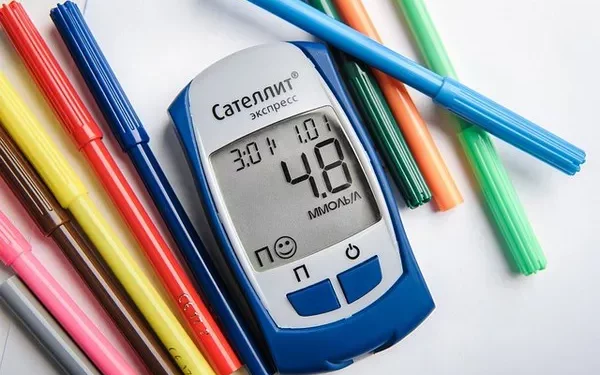Postprandial hypoglycemia, also known as reactive hypoglycemia, is a condition characterized by low blood sugar levels occurring within a few hours after eating. This condition can cause a variety of symptoms, ranging from mild discomfort to severe health issues. Understanding the causes and mechanisms behind postprandial hypoglycemia is essential for proper diagnosis, management, and treatment.
What is Postprandial Hypoglycemia?
Postprandial hypoglycemia typically occurs within four hours of eating. Unlike fasting hypoglycemia, which happens after prolonged periods without food, postprandial hypoglycemia is directly related to the body’s response to a meal. Symptoms may include shakiness, sweating, dizziness, fatigue, irritability, hunger, and confusion. In severe cases, it can lead to loss of consciousness or seizures.
Types of Postprandial Hypoglycemia
Postprandial hypoglycemia can be classified into two main types:
Idiopathic Postprandial Syndrome (IPS): This is the most common form and occurs without an identifiable cause. Individuals with IPS experience symptoms of hypoglycemia after meals, but their blood sugar levels may not fall below the normal range. It is often considered a benign condition but can be distressing for those affected.
Secondary Postprandial Hypoglycemia: This type is associated with underlying conditions or external factors that affect glucose metabolism. It is more likely to cause clinically significant hypoglycemia. Conditions that can lead to secondary postprandial hypoglycemia include gastrointestinal surgeries, metabolic disorders, hormonal imbalances, and medication use.
Causes of Postprandial Hypoglycemia
Several factors and conditions can contribute to the development of postprandial hypoglycemia. These can be broadly categorized into physiological, pathological, and iatrogenic causes.
1. Physiological Causes
Rapid Gastric Emptying (Dumping Syndrome): Rapid gastric emptying, often seen after gastric surgery, can lead to a quick influx of food into the small intestine. This causes a rapid release of insulin, which can overshoot and result in hypoglycemia. Dumping syndrome can be early (occurring within 30 minutes of eating) or late (occurring 1-3 hours after eating). Late dumping syndrome is more likely to cause hypoglycemia.
Increased Insulin Sensitivity: Some individuals have an exaggerated insulin response to carbohydrate intake, leading to rapid and excessive lowering of blood glucose levels. This heightened insulin sensitivity can cause postprandial hypoglycemia.
Counterregulatory Hormone Deficiency: The body relies on counterregulatory hormones like glucagon, cortisol, and epinephrine to increase blood sugar levels. Deficiencies or impairments in these hormones can exacerbate hypoglycemia.
2. Pathological Causes
Gastrointestinal Surgeries: Surgical procedures like gastric bypass or gastrectomy can alter the normal digestive process, leading to rapid gastric emptying and subsequent hypoglycemia. These surgeries can also affect hormone release and nutrient absorption, contributing to the condition.
Insulinoma: Insulinoma is a rare tumor of the pancreas that secretes excess insulin. This can cause recurrent episodes of hypoglycemia, including postprandial hypoglycemia. Diagnosis involves blood tests, imaging studies, and sometimes surgery.
Non-Insulinoma Pancreatogenous Hypoglycemia Syndrome (NIPHS): NIPHS is characterized by excessive insulin secretion not related to insulinomas. This can occur due to an abnormal increase in pancreatic beta-cell mass or function.
Metabolic Disorders: Conditions like hereditary fructose intolerance, galactosemia, and glycogen storage diseases can impair glucose metabolism and lead to hypoglycemia after meals.
Hormonal Imbalances: Hormonal disorders such as adrenal insufficiency, hypothyroidism, and growth hormone deficiency can disrupt glucose regulation and contribute to postprandial hypoglycemia.
3. Iatrogenic Causes
Medications: Certain medications, including sulfonylureas, meglitinides, and insulin, used to treat diabetes can cause hypoglycemia, especially if the dosage is not appropriately managed. Non-diabetic medications like beta-blockers and quinine can also affect blood sugar levels.
Alcohol Consumption: Alcohol can impair gluconeogenesis (the production of glucose in the liver) and lead to hypoglycemia, particularly when consumed on an empty stomach or with inadequate food intake.
Mechanisms Behind Postprandial Hypoglycemia
Understanding the mechanisms that lead to postprandial hypoglycemia involves examining how the body regulates blood sugar levels and how this process can become dysregulated.
1. Insulin Secretion and Action
Insulin is a hormone produced by the pancreas that helps regulate blood sugar levels by facilitating the uptake of glucose into cells. After a meal, blood glucose levels rise, prompting the pancreas to release insulin. In some individuals, the insulin response may be exaggerated, leading to rapid and excessive lowering of blood glucose levels, resulting in hypoglycemia.
2. Gastric Emptying and Glucose Absorption
The rate at which food leaves the stomach and enters the small intestine (gastric emptying) plays a crucial role in glucose absorption. Rapid gastric emptying can cause a swift rise in blood glucose levels, triggering a strong insulin response. This can lead to an overshoot in insulin production and subsequent hypoglycemia. Conversely, delayed gastric emptying can slow glucose absorption and lead to prolonged hypoglycemia.
3. Counterregulatory Hormone Response
Counterregulatory hormones, including glucagon, cortisol, epinephrine, and growth hormone, work to increase blood sugar levels during hypoglycemia. A deficiency or impairment in these hormones can reduce the body’s ability to counteract low blood sugar levels, leading to more severe and prolonged hypoglycemia.
4. Glucose Metabolism and Storage
The liver plays a key role in maintaining blood sugar levels by storing glucose as glycogen and releasing it into the bloodstream as needed. Impairments in glycogen storage or breakdown can disrupt this balance, contributing to hypoglycemia. Metabolic disorders affecting glucose metabolism, such as glycogen storage diseases, can also lead to postprandial hypoglycemia.
Diagnosis of Postprandial Hypoglycemia
Diagnosing postprandial hypoglycemia involves a thorough evaluation of the patient’s symptoms, medical history, and laboratory tests. Key diagnostic steps include:
1. Medical History and Symptom Evaluation
A detailed medical history can provide clues about potential underlying causes of hypoglycemia. Patients should be asked about the timing and frequency of symptoms, dietary habits, recent surgeries, medication use, and any known medical conditions.
2. Blood Glucose Monitoring
Measuring blood glucose levels during symptomatic episodes is crucial for diagnosing hypoglycemia. Patients may be asked to use a glucometer to monitor their blood sugar levels at home, particularly after meals. A diagnosis of hypoglycemia is confirmed if blood glucose levels fall below 70 mg/dL (3.9 mmol/L) during symptoms.
3. Mixed-Meal Tolerance Test (MMTT)
The MMTT is a diagnostic test used to evaluate the body’s response to a mixed meal. It involves consuming a standardized meal containing carbohydrates, proteins, and fats, followed by periodic blood glucose measurements over several hours. The test can help identify abnormal insulin responses and confirm postprandial hypoglycemia.
4. Continuous Glucose Monitoring (CGM)
CGM systems provide continuous, real-time monitoring of blood glucose levels throughout the day and night. They can capture fluctuations in blood sugar levels that might be missed with intermittent testing. CGM is particularly useful for identifying patterns of hypoglycemia and assessing the effectiveness of treatment strategies.
5. Hormonal and Metabolic Testing
Additional tests may be performed to evaluate the function of counterregulatory hormones and identify underlying metabolic disorders. These tests may include measuring levels of glucagon, cortisol, growth hormone, insulin, and other relevant markers.
Management and Treatment of Postprandial Hypoglycemia
Effective management of postprandial hypoglycemia involves addressing the underlying cause, modifying dietary habits, and implementing medical treatments as needed. Treatment strategies may include:
1. Dietary Modifications
Frequent Small Meals: Eating smaller, more frequent meals can help maintain stable blood sugar levels and prevent large insulin spikes. Patients are often advised to consume meals and snacks every 2-3 hours.
Low Glycemic Index Foods: Foods with a low glycemic index (GI) release glucose more slowly into the bloodstream, reducing the risk of rapid insulin release and hypoglycemia. Examples include whole grains, legumes, fruits, and vegetables.
Balanced Macronutrient Intake: Including a balance of carbohydrates, proteins, and fats in each meal can help stabilize blood sugar levels. Proteins and fats slow down the absorption of glucose, preventing rapid spikes and drops in blood sugar.
Avoiding Simple Sugars: Simple sugars and highly processed foods can cause rapid spikes in blood sugar, leading to exaggerated insulin responses. Patients should limit their intake of sugary snacks, beverages, and desserts.
2. Medication Adjustments
Insulin and Diabetes Medications: For individuals with diabetes, adjusting the dosage and timing of insulin or other diabetes medications may be necessary to prevent postprandial hypoglycemia. This should be done under the guidance of a healthcare provider.
Alpha-Glucosidase Inhibitors: These medications slow down the digestion and absorption of carbohydrates, reducing postprandial glucose spikes. Examples include acarbose and miglitol.
Diazoxide: Diazoxide is a medication that inhibits insulin release from the pancreas. It may be used in cases of severe postprandial hypoglycemia not responsive to other treatments.
3. Surgical and Medical Interventions
Pancreatic Surgery: In cases of insulinoma or other pancreatic tumors causing hypoglycemia, surgical removal of the tumor may be necessary.
Gastrointestinal Surgery: For patients with severe dumping syndrome, surgical interventions such as reconstructive surgery or placement of a gastric band may help slow gastric emptying and reduce hypoglycemia episodes.
4. Hormone Replacement Therapy
Adrenal Insufficiency: Patients with adrenal insufficiency may require hormone replacement therapy with glucocorticoids to improve their ability to counteract hypoglycemia.
Growth Hormone Deficiency: Growth hormone replacement therapy may be indicated for individuals with growth hormone deficiency contributing to hypoglycemia.
5. Monitoring and Follow-Up
Regular follow-up with a healthcare provider is essential for monitoring the effectiveness of treatment and making necessary adjustments. Patients should be educated on recognizing the signs and symptoms of hypoglycemia and managing it promptly.
See also: What’s the Connection of Chronic Kidney Disease and Hypoglycemia
Conclusion
Postprandial hypoglycemia is a complex condition with various underlying causes and mechanisms. Accurate diagnosis and effective management require a comprehensive approach, including dietary modifications, medication adjustments, and addressing any underlying medical conditions. By understanding the factors contributing to postprandial hypoglycemia and implementing appropriate treatment strategies, patients can achieve better blood sugar control and improve their quality of life.
Related topics:
What’s Hypoglycemia Unawareness

























